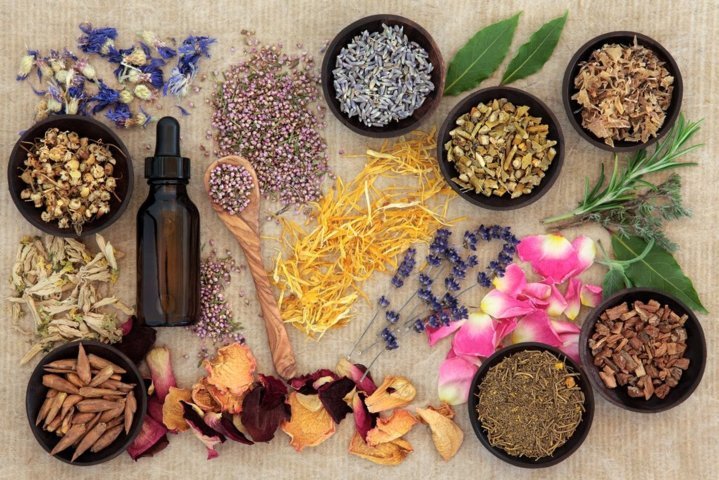Ayurveda, the ancient Indian system of holistic healing, has been offering natural remedies for common health ailments for over 5,000 years. Unlike conventional medicine, which often focuses on treating symptoms, Ayurveda addresses the root causes of illness, balancing the body’s doshas (Vata, Pitta, and Kapha) to promote overall well-being. With its blend of herbal therapies, dietary recommendations, and lifestyle changes, Ayurveda provides effective solutions for everyday health issues like headaches, insomnia, digestive disorders, and stress.
This article explores some of the most common ailments and how Ayurvedic remedies can offer relief, while incorporating insights into the growing demand for Ayurvedic products in the wellness market.
- Headaches
Headaches can stem from a variety of causes in Ayurveda, often related to imbalances in the Vata or Pitta doshas. Vata-type headaches tend to result from stress, anxiety, or irregular eating habits, while Pitta-type headaches often involve heat, causing symptoms like migraines, light sensitivity, and burning sensations.
Ayurvedic Remedies:
- For Vata Headaches: Warm oil head massages using Brahmi oil or Sesame oil are highly effective for calming the nervous system and relieving tension. Herbs such as Ashwagandha and Shatavari help reduce stress and balance Vata.
- For Pitta Headaches: Cooling herbs like Coriander and Sandalwood can provide relief. Drinking a glass of fresh Amla juice is also beneficial for reducing Pitta and calming headaches caused by excessive heat.
Lifestyle Tips:
- Vata: Establish a regular eating schedule and avoid skipping meals.
- Pitta: Stay hydrated, avoid hot and spicy foods, and spend time in cool environments.
- Insomnia
Insomnia, or difficulty sleeping, is often linked to an imbalance in the Vata dosha, which governs movement and nervous system activity. An overactive Vata can cause restless thoughts, anxiety, and an inability to wind down, making it difficult to fall asleep or stay asleep. Pitta imbalances can also lead to insomnia due to overheating and irritability, especially during the night.
Ayurvedic Remedies:
- Vata Imbalance: Drinking a warm glass of Ashwagandha milk or Golden milk (turmeric-infused milk) before bed helps calm the mind and soothe Vata. Brahmi and Jatamansi are powerful herbs that promote relaxation and deep, restful sleep.
- Pitta Imbalance: Herbs like Shankhpushpi and Aloe Vera juice can help cool the body and promote sleep. Using Sandalwood oil or Rose water before bed helps reduce heat and calm Pitta.
Lifestyle Tips:
- Establish a calming bedtime routine, including relaxation techniques like Abhyanga (self-oil massage), listening to soothing music, or practicing Pranayama (breathing exercises).
- Avoid stimulants like caffeine or alcohol, especially in the evening.
- Digestive Issues
Digestive disorders are common and often stem from imbalances in the digestive fire, or Agni, according to Ayurveda. A sluggish digestive fire can lead to bloating, gas, and constipation (associated with Vata), while an overactive fire can result in acid reflux, heartburn, or loose stools (associated with Pitta).
Ayurvedic Remedies:
- For Vata Digestive Issues: Incorporate warming spices like Ginger, Cumin, and Fennel into meals to stimulate digestion. Drinking warm water with lemon in the morning helps improve digestion and relieve constipation.
- For Pitta Digestive Issues: Cooling herbs like Aloe Vera, Mint, and Licorice can help soothe the stomach and reduce acidity. Drinking Amla juice or consuming Coconut water also helps reduce excess Pitta.
Lifestyle Tips:
- Avoid cold, raw, or processed foods that are difficult to digest.
- Practice mindful eating by chewing food slowly and avoiding distractions like screens while eating.
- Stress and Anxiety
Stress and anxiety are often caused by an aggravated Vata dosha, which can lead to feelings of fear, insecurity, and restlessness. Ayurveda offers a comprehensive approach to managing stress by calming the mind and body through herbal remedies, meditation, and lifestyle practices.
Ayurvedic Remedies:
- Herbs: Ashwagandha, Brahmi, and Shankhpushpi are powerful adaptogens that reduce stress and promote relaxation. Consuming Ashwagandha as a supplement or in milk can help lower cortisol levels, while Brahmi tea calms the mind.
- Therapies: Shirodhara (oil dripping therapy) and Abhyanga (full-body oil massage) are Ayurvedic treatments that nourish the nervous system and reduce anxiety.
Lifestyle Tips:
- Incorporate daily Pranayama (breathing exercises) and Meditation into your routine to balance Vata and improve mental clarity.
- Practice Yoga, especially poses like Child’s Pose and Shavasana, which calm the mind and body.
- Colds and Coughs
Ayurveda attributes colds and coughs to an aggravated Kapha dosha, which is linked to excess mucus, congestion, and sluggish energy. Strengthening the immune system and maintaining a balanced Kapha through dietary and herbal remedies can help prevent and treat these symptoms.
Ayurvedic Remedies:
- Herbs: Tulsi, Ginger, and Turmeric are excellent for clearing congestion and boosting immunity. A traditional Ayurvedic remedy involves drinking a decoction of Tulsi leaves, Ginger, and Honey to soothe the throat and reduce Kapha.
- Oils: Eucalyptus oil or Peppermint oil can be used in steam inhalations to clear blocked nasal passages and support Kapha balance.
Lifestyle Tips:
- Avoid cold, heavy, and dairy-rich foods that increase mucus.
- Engage in regular physical activity and Pranayama to keep Kapha in check.
Market Trends: Rising Demand for Ayurvedic Remedies
The global demand for Ayurvedic products has been growing at a rapid pace, driven by increased consumer awareness of natural and holistic treatments. According to a report by Hardman Market Insights, the global Ayurvedic market was valued at USD 6.5 billion in 2021 and is projected to grow at a CAGR of 16.2% from 2021 to 2027. The demand for Ayurvedic remedies, especially for common ailments like stress, digestive issues, and insomnia, is contributing significantly to this growth.
In India, Ayurveda’s home market, the demand for herbal products is booming, with brands like Dabur, Patanjali, and Himalaya leading the way. Ayurvedic products have seen a surge in demand as consumers prioritize natural treatments over synthetic drugs, especially during the COVID-19 pandemic. The report also highlights the increasing number of Ayurvedic clinics and wellness centers worldwide, further boosting the market.
Holistic Healing for Common Ailments
Ayurveda offers a holistic approach to treating everyday health problems by focusing on balancing the body’s doshas and promoting overall well-being. Whether dealing with headaches, insomnia, digestive issues, or stress, Ayurvedic remedies provide natural, safe, and effective solutions that address the root cause of these ailments.
As the global wellness market continues to shift towards natural and preventive healthcare, Ayurveda’s popularity is expected to keep growing. With a rich history of healing and a modern emphasis on sustainability, Ayurveda remains a powerful tool for improving health and vitality in the 21st century.Bottom of Form









